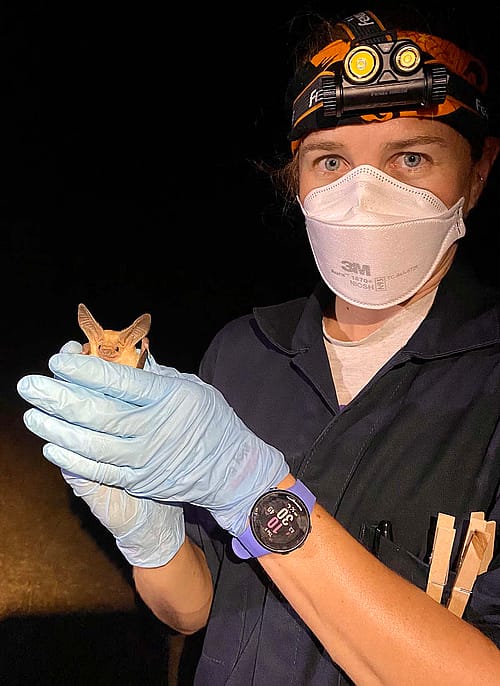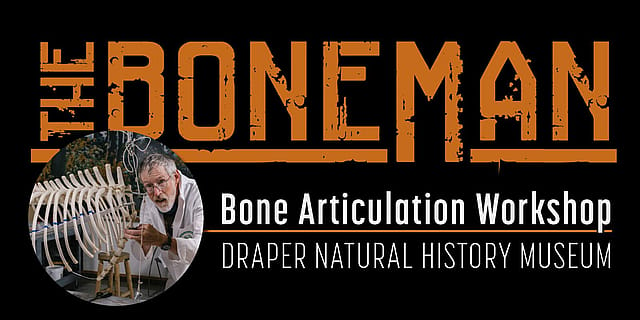
- This event has passed.
Lecture: Bat Ecology in the West
August 1, 2024 @ 12:00 pm - 1:00 pm MDT

Voyagers of the Night: Investigating the Ecology of Bats in the West
By Dr. Riley F. Bernard
August 1, 2024
Noon–1 p.m.

Join us for the August Lunchtime Expedition, Voyagers of the Night: Investigating the Ecology of Bats in the West, presented by Dr. Riley F. Bernard, Assistant Professor, Department of Zoology and Physiology, University of Wyoming.
The in-person talk takes place in the Center’s Coe Auditorium, with a virtual option available. If you prefer to join us online, you may register in advance via Zoom webinar: https://us02web.zoom.us/webinar/register/WN_EaX18w_PRmeA6NMrPPNhQw
After registering, you will receive a confirmation email containing information about joining the webinar.
About the program
Numerous bat species in North America are facing severe population declines due to anthropogenic stressors such as habitat loss, climate change, and the introduction of disease. While research on bats has been incredibly informative for conservation, most research has been conducted in the eastern portion of the continent, where bats are more easily accessible (i.e., in caves and mines during winter).
Bats in the West are just as susceptible to these threats, but information regarding their ecology is lacking. Researchers in the Bernard Research Lab at the University of Wyoming are working to fill knowledge gaps related to bat ecology, behavior, and persistence. Specifically, we are working to better understand where at-risk species roost during summer, how they utilize our novel landscape, and how they are affected by various stressors such as the introduction of disease (white-nose syndrome) and climate change.
In this talk, Dr. Bernard provides a primer of what makes bats special and unique to study, as well as provide a sneak peek into what her lab has been helping uncover in an attempt to save the region’s bats.
About the speaker
Dr. Riley Bernard is an applied wildlife ecologist and Assistant Professor in the Department of Zoology and Physiology at the University of Wyoming. Her research focuses on the ecology and behavior of cryptic species on topics such as foraging, competition, invasive species interactions, the effects of disease on community structure, species susceptibility, and survival. She also uses tools from Decision Science to ensure the questions she seeks to answer provide the best information for wildlife and natural resource managers to make tractable and robust decisions.
Upcoming Lunchtime Expeditions
The series generally continues on the first Thursday of each month.
• September 5: A Specialist Carnivore at its Southern Range Periphery: Canada Lynx in Disturbed Landscapes, by Dr. John Squires
• October 10 (note date change): Sporting Lead-Free: A Vital Step for Wildlife Conservation, by Hannah Leonard
• November 7: Wolverine Conservation: Giving Up Control to Promote Breeding Success, by Melissa Roman
• December 5: Mule Deer Migration, by Tony Mong
Have you missed a Lunchtime Expedition?
The talks in this series are gathered in YouTube playlists by year:
• 2024 Lunchtime Expeditions
• 2023 Lunchtime Expeditions

